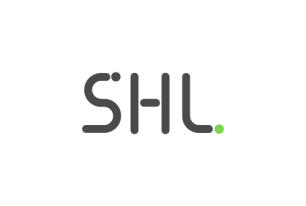The Critical Need for Reskilling Potential in Today’s Workforce
In today’s fast-paced, ever-evolving workplace, the ability to assess and understand an individual’s reskilling potential has never been more crucial.
Share
The Impact of Technology on Skills
As technological advancements continue to reshape industries, roles are rapidly transforming, and labor shortages become more pronounced, the traditional skills that once guaranteed success are no longer sufficient. Employers and employees must recognize the importance of reskilling to remain competitive and relevant in this dynamic environment.
The fourth industrial revolution, characterized by the integration of artificial intelligence (AI), machine learning, and automation, is fundamentally altering the skills landscape. According to the World Economic Forum, by 2025, approximately 85 million jobs may be displaced by a shift in the division of labor between humans and machines. On the contrary, 97 million new roles may emerge, adapted to the new division of labor between humans, machines, and algorithms.
This shift underscores the need for continuous learning and adaptability. For instance, workers in manufacturing who were once reliant on manual skills now need to understand and operate complex automated systems. Similarly, in the service sector, customer support roles are increasingly requiring proficiency in AI-driven customer relationship management (CRM) tools.
Understanding an individual’s reskilling potential enables organizations to identify who can transition from obsolete roles to emerging ones. It involves adopting a new approach to recruitment: assessing not only current skills but also the ability to learn and adapt to new technologies. This foresight can be the difference between a workforce that thrives and one that becomes obsolete.
Book a Demo to see how SHL can help your organization understand reskilling potential by measuring the ability and willingness of individuals to pick up new skills.
Rapidly Changing Roles
Roles across various sectors are evolving at an unprecedented rate. In the past, job descriptions and required skills would remain static for years, if not decades. Today, however, the shelf life of skills is shrinking. A report by the Institute for the Future (IFTF) and Dell Technologies suggests that 85% of the jobs that will exist in 2030 have not been invented yet.
For example, consider the role of a digital marketer. A decade ago, proficiency in social media and basic SEO was sufficient. Today, digital marketers need expertise in data analytics, AI-driven marketing tools, and a deep understanding of consumer behavior driven by big data. These rapid changes necessitate a workforce that can quickly acquire new skills and pivot as needed.
Organizations that embrace skills-based hiring and prioritize developing reskilling potential are better positioned to fill these evolving roles. They can create targeted onboarding and Skills Development training programs that align with future job requirements, ensuring that their employees are not left behind. This proactive approach is essential for maintaining a competitive edge in a constantly changing market.
Addressing Labor Shortages
Labor shortages are becoming a significant challenge in many industries and are putting immense pressure on employers to fill gaps quickly and efficiently. Understanding reskilling potential in your professional workforce is a strategic solution to this problem. Instead of solely relying on external hiring to fill roles, which can be time-consuming and costly, companies can look inward to identify employees who can be reskilled. This approach not only saves resources but also boosts employee morale and loyalty, as they see their employers investing in their growth and future.
Reskilling can also help tap into underutilized segments of the workforce. By identifying and harnessing their professional potential, employers can mitigate labor shortages and build a more diverse and inclusive workforce.
The Benefits of Investing in Reskilling
Investing in reskilling has numerous benefits for both employers and employees. For employers, it means building a more agile and adaptable workforce capable of navigating the complexities of modern work environments. It reduces the costs associated with turnover and external recruitment and fosters a culture of continuous improvement and innovation.
For the team, reskilling offers job security and career growth opportunities. It empowers them to take control of their professional development, ensuring they remain valuable and competitive in the job market. This empowerment can lead to higher job satisfaction and retention rates.
The transformative impact of technology, the swift evolution of roles, and persistent labor shortages all highlight the critical need for a workforce that is adaptable, skilled, and ready to meet future challenges. Organizations who recognize this need and act on it will not only thrive in the face of change but will also create a resilient, future-ready workforce. As the saying goes, "The best way to predict the future is to create it," and reskilling is the key to doing just that.
Learn more about how SHL’s Professional Hiring Solution can help your organization measure the essential skills needed for success in role today as well as the reskilling potential of experienced hires.









